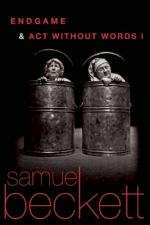|
This section contains 2,180 words (approx. 8 pages at 300 words per page) |

|
If such categories as optimism and pessimism pertain at all to Beckett, then Endgame is much more pessimistic than Waiting for Godot. In its seedy room whose windows look out on empty ocean, the living world seems to have been narrowed down to four survivors: Hamm, who cannot see or stand; Clov, his servant, who cannot sit; and Nagg and Nell, his parents, who exist throughout in ash cans. Everything is winding down to a finish, as in that ultimate phase of a chess match which gives the play its title. Humanly, it is dissolution rather than explicit death that seems to be in the offing. There are no more coffins, we are told; death as a rite, and therefore as connection to human truth, has been abrogated.
In this burned-out world, which has been compared to that of Lear at the end of his drama but perhaps...
|
This section contains 2,180 words (approx. 8 pages at 300 words per page) |

|


